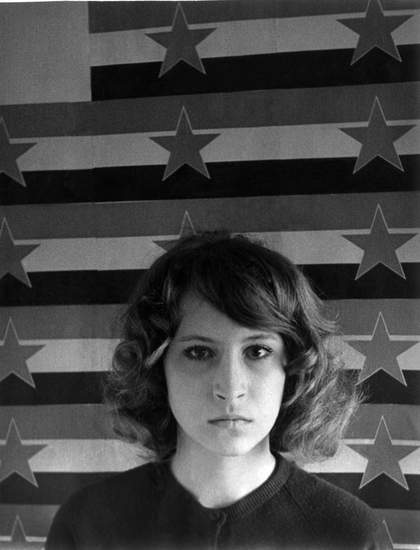Born 1949 in Zagreb, Croatia, where she lives and works.

Sanja Iveković, 1975
Courtesy the artist
Photo: Dalibor Martinis
Sanja Iveković studied at the Zagreb Academy of Fine Arts, graduating in 1971 from the department of graphics. Coming of age during the 1968 student protests, which swept across Yugoslav cities, Iveković belongs to the New Art Practice (NAP), a generation of artists whose conceptual practices gravitated toward the use of public space, breaking away from institutional infrastructures. As an act of resistance against lyrical abstraction, these artists combined visual art with newly available technologies such as photography, Polaroids, photocopies, film, video and graphic design. In 1978 Iveković co-founded the Podroom Gallery with fellow artist Dalibor Martinis, which became a hub for her generation of artists. Iveković was the first artist in Yugoslavia to actively engage with gender difference, tackling the commodification of women’s roles with the onset of consumerism in the country. She began experimenting with pop art techniques while she was still a student. Using television advertisements, tabloid magazines and current affairs as her sources, Iveković juxtaposed these with images of her own life, addressing the discrepancy between public and private discourses, and pointing to the hypocrisy of the public declarations of gender equality in socialist Yugoslavia.
Sweet Violence 1974 uses the footage of the economic propaganda programme (EPP) – a cluster of advertisements broadcast daily on Yugoslav television. The work highlights the idiosyncrasy of the Yugoslav situation: a single party socialist state, built on the legacy of the anti-fascist partisan struggle and principles of solidarity, egalitarianism and self-management, simultaneously immersed in what has been termed ‘utopian consumerism’. In the work, Iveković visually disconnects the viewer from the persuasive messages of product advertising by inserting black vertical bars in front of the image, enabling a critical distance from the ‘sweet violence’ of media culture.
Lina Džuverović
September 2015
